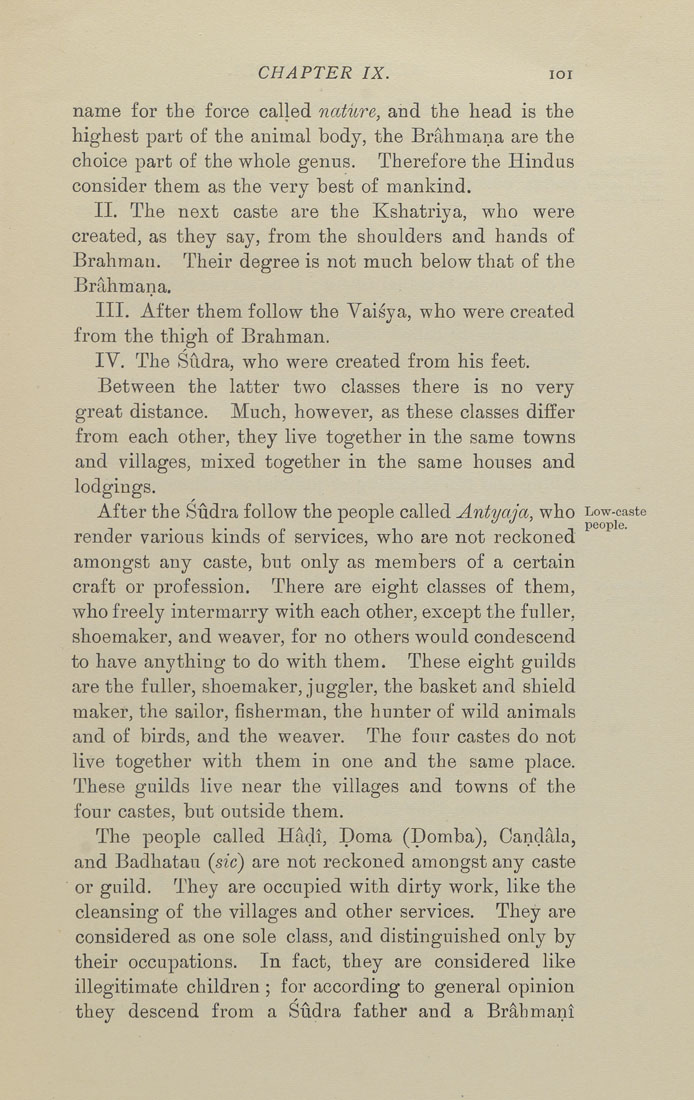CHAPTER IX. loi
name for the force called nature, and the head is the
highest part of the animal body, the Brahmana are the
choice part of the whole genus. Therefore the Hindus
consider them as the very best of mankind.
II, The next caste are the Kshatriya, who were
created, as they say, from the shoulders and hands of
Brahman. Their degree is not much below that of the
Brahmana.
III, After them follow the Vaisya, who were created
from the thigh of Brahman.
IV, The SUdra, who were created from his feet.
Between the latter two classes there is no very
great distance. Much, however, as these classes differ
from each other, they live together in the same towns
and villages, mixed together in the same houses and
lodgings.
After the Siidra follow the people called Antt/aia, who Low-caste
. o J ' people.
render various kinds of services, who are not reckoned
amongst any caste, but only as members of a certain
craft or profession. There are eight classes of them,
who freely intermarry with each other, except the fuller,
shoemaker, and weaver, for no others would condescend
to have anything to do with them. These eight guilds
are the fuller, shoemaker, juggler, the basket and shield
maker, the sailor, fisherman, the hunter of wild animals
and of birds, and the weaver. The four castes do not
live together with them in one and the same place.
These guilds live near the villages and towns of the
four castes, but outside them.
The people called Hadi, Doma (Domba), Candala,
and Badhatau (sic) are not reckoned amongst any caste
or guild. They are occupied with dirty work, like the
cleansing of the villages and other services. They are
considered as one sole class, and distinguished only by
their occupations. In fact, they are considered like
illegitimate children ; for according to general opinion
they descend from a Sudra father and a Brahmani
|








